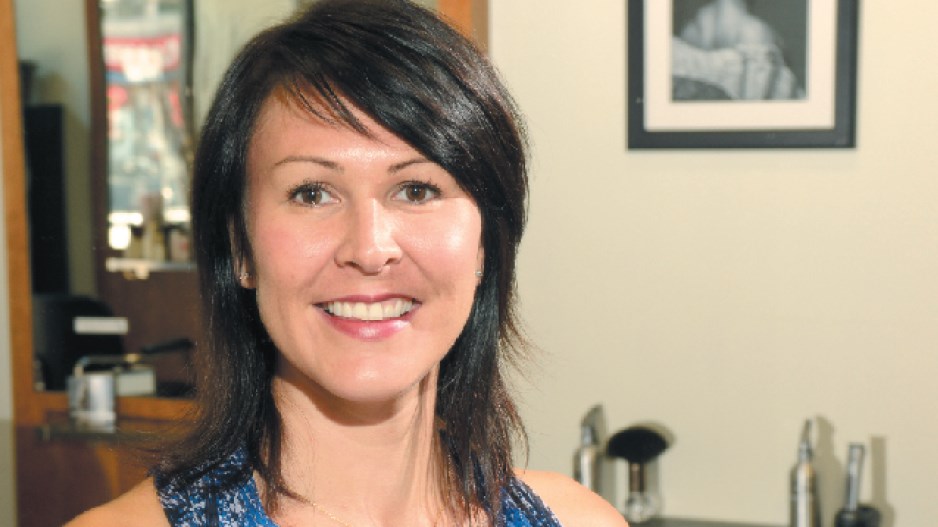Five years after she opened Cocoa Nymph in Point Grey, chocolatiere Rachel Sawatzky decided it was time to grow the business with an expansion and opened a second chocolate shop in Mount Pleasant.
But less than a year after the second shop’s grand opening in July 2012, she was forced to close it and take a $75,000 loss.
There was nothing wrong with the location on Ontario Street and 7th Avenue, Sawatsky said. The problem was with her landlord and her lease.
“Business-wise it was fantastic there,” she said. “We did a really swift coffee business.”
Sawatsky had signed a one-and-half-year sub-lease that was due for renewal in August 2013. She could have signed a new five-year lease, but it would have meant doubling her rent and quadrupling her deposit. She decided it just wasn’t worth staying put and pulled the plug.
“We closed it and cut our losses,” she said. “We had to pay out a few months of rent for a space we weren’t using. We had plunged a lot of money into tenant improvements that we couldn’t take with us, plus new equipment that we had to sell off at a loss. It’s a complete miracle that my business survived.”
Fortunately, she still had her original main location at 3739 West 10th Avenue, and has learned her lesson. She’s not planning on opening a second location anytime soon.
It’s not the only small business in Vancouver that has been forced to relocate or shut down after a lease expires and landlords jack up rents.
The Little Nest family restaurant, on Charles Street in Vancouver, is being forced to relocate for similar reasons.
Unlike residential rents, which have allowable increases capped annually by the Residential Tenancy Branch, there are no rent caps on commercial properties, and little protection when landlords want to kick a business out.
“This is a huge issue in Vancouver,” Sawatsky said. “Vancouver has no legislation on regulating commercial leases, so your landlord can change the terms on you when you have to renew a lease. If a Starbucks (Nasdaq:SBUX) comes in and wants to offer a landlord more money for a specific location, they can just kick out a local business.”
The lack of protection for commercial renters makes for a lot of uncertainty.
“It makes it really impossible when you don’t know what’s going to happen each three years to really plan for your business future,” said Little Nest restaurant owner Mary Macintyre. “You can’t really bank on longevity.”
She said small-business owners need to make sure the first lease they sign is “watertight,” otherwise they may find themselves renegotiating a new lease that contains onerous terms and rent increases.
Leadership style
Danielle Viel, co-owner of Pelle Hair Salon and Esthetics, didn’t have to worry about many of the hurdles other new business owners face, like finding a location, signing a lease, hiring new employees or building a client base.
She worked at the salon for nearly a year before she and her business partner, esthetician Massy Zare, bought the former owner out.
“We basically walked into a turnkey business,” said the 37-year-old stylist. “We were here already, so we knew the staff, they knew us.“
Her biggest challenge has been changing the salon’s vision and getting buy-in from people who used to be her peers.
“I haven’t been here very long – under a year – and I’m quite a bit younger than some of the staff here,” she said. “We didn’t want to rock the boat with our staff, so we eased into this transition as painlessly as possible without having too many waves.”
Many salons don’t have employees, per se, but rather independent contractors who rent space. But for all intents and purposes, they are like employees. Having been one of them, Viel had heard all the water-cooler talk that goes on behind a boss’ back, so she had a good idea of the changes they wanted to see and implemented them slowly.
Viel and her partner started having staff meetings to garner input, made some renovations to make the salon look trendier, changed the kind of music that they played, and brought in one additional stylist.
She believes listening to her colleagues and making small improvements has helped improve the salon’s energy.
“Listening to the staff needs, I think that’s probably what was the main thing,” she said. “The staff did not feel they were heard.”
Growing contacts
For Russ Russell, who just opened his first business five months ago – a flower shop called Stephanie’s Gallery Fleur (4416 West 10th) – marketing has been the biggest hurdle.
With a brand-new business, he struggles to get the word out, and simply can’t afford print advertising, which he says would cost about $5,000 every few months.
“Most small businesses, in their first year or two, have almost non-existent advertising budgets,” Russell said. “It’s a catch-22: you can’t grow without it, but you can’t afford to do it. Advertising is almost prohibitive for a very small business, so we have to look at other things.”
Russell has a background in sales, so he’s used to beating the bushes, and has been doing just that.
“I’ve been going out and beating the streets, trying to contact anybody that is a target business for us – events planners, wedding planners, any of the larger corporations.”
In addition to old-fashioned networking and coldcalling, he is also having a website built and hopes social media will help with some of the marketing.
Russell said he plans to eventually advertise more, but will need to slowly grow his sales first.
“Social media will be a big part of [the marketing strategy] in the coming months, and also just word-of-mouth,” he said. “We’re trying to establish an image.” •




